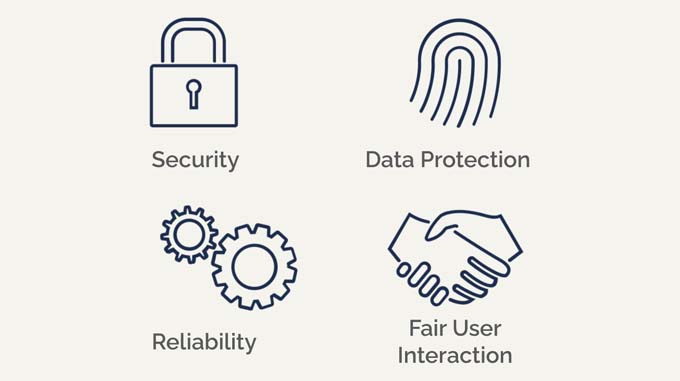Frost & Sullivan study: Blockchain converges with health sector
Frost & Sullivan study highlights a technological convergence that is being reinterpreted by blockchain: Whether data interoperability, insurance fraud management, drug supply chain provenance or identity management, according to Frost & Sullivan's Transformational Health team, blockchain offers high growth opportunities.

The Frost & Sullivan study shows that in the next few years, a blockchain ecosystem will emerge that focuses on health use cases and includes health data exchange, smart asset management, insurance and payment options, blockchain platform providers and consortia.
The digital impact on care models toward the personalized, outcomes-based treatment paradigm is a key driver of blockchain technology.
The convergence of blockchain with innovative technologies such as artificial intelligence (AI), machine learning, mHealth and the Internet of Medical Things (IoMT) also offers new opportunities to develop a digital health economy.
Democratization through blockchain
At its core, blockchain delivers the potential of a common platform that decentralizes healthcare interactions while ensuring access control, authenticity, and integrity, while presenting the industry with revolutionary opportunities for a value-based care and reimbursement model.
"New, connected, medical devices and the need to protect data from data breaches make blockchain technology, with its comprehensive security infrastructure, the obvious solution for emerging digital workflows and advanced interoperability in healthcare. It provides an additional layer of security through a unique distributed network match that uses encryption techniques to minimize cyberattacks," explains Transformational Health Industry analyst Kamaljit Behera.
"Blockchain may not be the panacea for the healthcare industry's challenges, but by streamlining current work processes, it has the potential to save billions of dollars and replace some high-cost gatekeepers with disintermediation."
The latest Frost & Sullivan study, Blockchain Technology in Global Healthcare, 2017-2025, from the Growth Partnership Service's Advanced Medical Technologies program, examines blockchain's potential to solve problems in data interoperability, cybersecurity, notarization of insurance and medical billing fraud, integrity around clinical trials, and supply chain provenance for medicines. In addition to looking at the timeline for implementation, the study examines growth opportunities, implementation challenges, government as well as trade initiatives, selected collaborations and agreements, and companies/consortia to watch.
Some of the key market players in the blockchain market in the healthcare industry include:
Guardtime:
The proprietary KSI (Keyless Signature Infrastructure) platform promises 100% accuracy in retrieved patient records. In 2016, Guardtime partnered with the Estonian e-Health Foundation to secure the health data of one million Estonian citizens.
PokitDok Inc:
Provides a software development platform with a suite of application program interface (API) endpoints that facilitate eligibility testing, claims, direct appointment scheduling, payment optimization, patient identity management, drug sales and other business processes.
Gem Health:
The company's GemOS enterprise platform and its partnerships with medical companies such as Philips and Capital One are accelerating blockchain solutions for IoMT and RCM use cases.
Patientory:
It features a blockchain-based distributed computing and 'software as a service' platform for medical data storage and is developing and working with Kaiser Permanente (U.S.) on patient data storage.
Other tools such as iSolve, LLC and its blockchain plat form ADLT™ assist companies in the life sciences industry with the drug development lifecycle by creating a smart marketplace for entrepreneurs, technology transfer offices, investors, and service providers to bid on, track, collaborate on, and bid on business opportunities.
The Frost & Sullivan study examines blockchain-as-a-service, distributed digital ledgers, peer-to-peer networks, cryptographic security, decentralized data centers, blockchain prototypes in healthcare, and blockchain with artificial intelligence and augmented/virtual reality systems.









